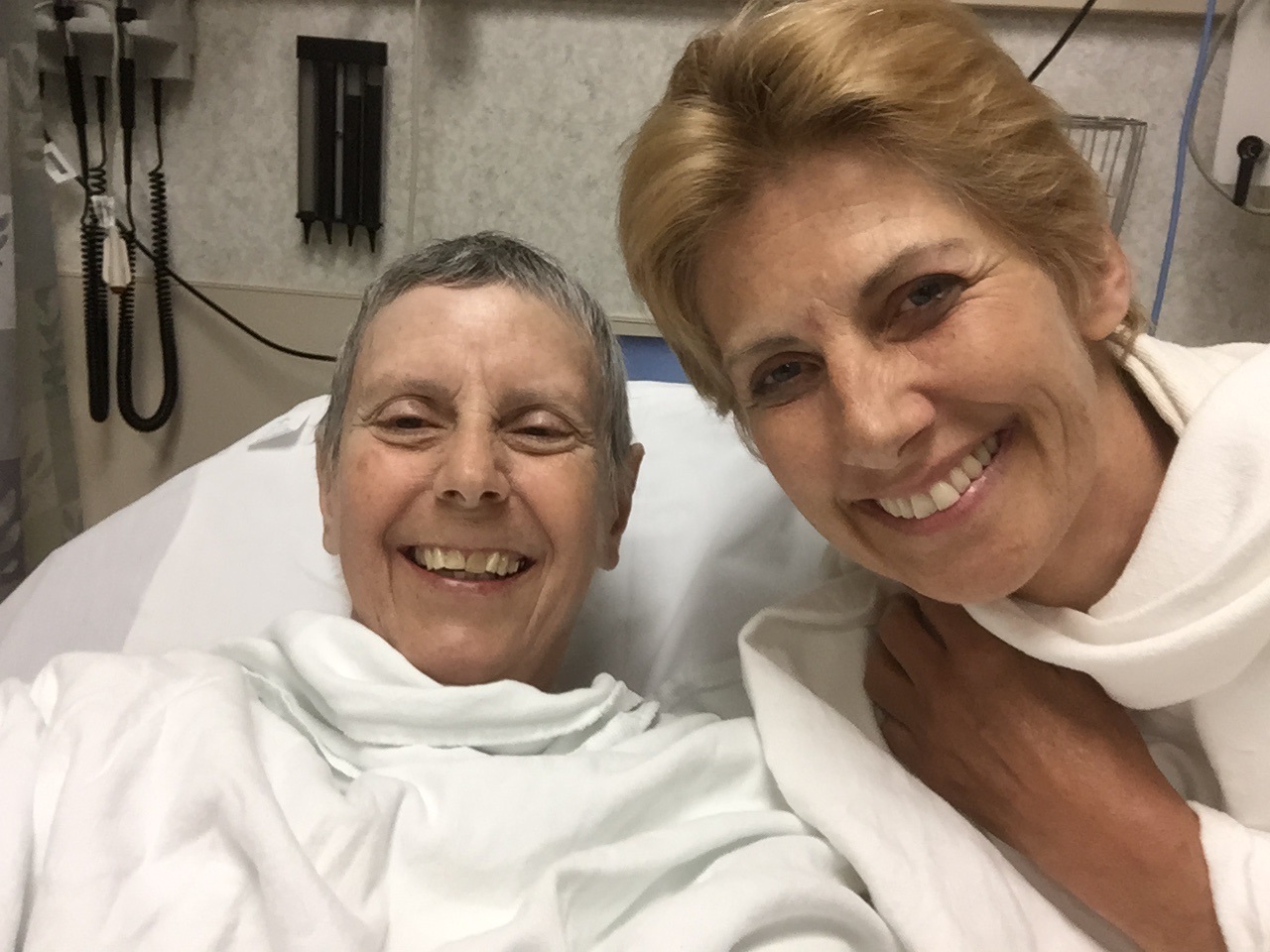House Fails to Pass Unprecedented Rider to Repeal D.C. Death with Dignity Act, Prevent D.C. Council from Re-passing It
End-of-Life Care Advocates Urge Senate to Prevent Attachment of Rider to Any Spending Bill
Nov 9, 2023 federal affairs

Mary Klein with her wife Stella Dawson in March 2018
End-of-life care advocates are cautiously relieved that the U.S. House of Representatives failed to pass a federal spending bill Thursday with an unprecedented policy rider to repeal the D.C. Death with Dignity Act and prohibit the D.C. Council from ever re-passing a medical aid-in-dying law. The rider was attached to the 2024 Financial Services and Government and General Government appropriations legislation (H.R. 4664, see section 820 of the bill, p. 213, lines 3-18).
Despite this temporary victory, advocates are wary that the policy rider authors may try to attach it to a future spending bill.
“The House leadership's obsession to overturn the D.C. Death with Dignity Act, a law that received support from a supermajority of both D.C. council members and residents, is an outrageous government power grab. We urge senators to protect D.C. residents’ bodily autonomy by keeping the rider out of any final spending bill,” said Kim Callinan, president/CEO of Compassion & Choices, the advocacy group that led the campaign to pass the D.C. Death with Dignity Act, and is working side-by-side with D.C. Congresswoman Eleanor Holmes-Norton to defeat this unprecedented anti-D.C. home rule policy rider. "Regardless of their politics, in recent elections and polls, American voters have clearly demonstrated that they don't want federal or state lawmakers intruding into the personal healthcare decisions they make in consultation with their doctors and loved ones, including their end-of-life healthcare decisions.”
The 2016 D.C. Death with Dignity Act authorizes mentally capable, terminally ill adults in D.C. with six months or less to live to have the option to obtain prescription medication they can decide to take to gently end unbearable suffering and die peacefully in their sleep. In addition to D.C., 10 states have authorized medical aid in dying as an end-of-life care option for terminally ill adults: California, Colorado, Hawaii, Maine, Montana, New Jersey, New Mexico, Oregon, Vermont, and Washington. Collectively, these jurisdictions represent more than one out of five (22%) of U.S. residents.“It is wrong for Congress to dictate that terminally ill people should needlessly experience pain and suffering. It is wrong to deny them a peaceful death. And it is wrong to overturn a law, supported by two-thirds of D.C. residents, and approved by the D.C. Council by a veto-proof 11-2 vote,” said Stella Dawson Klein, whose wife and partner of 37 years, Mary Klein became the first publicly-known person to use the D.C. Death with Dignity Act in 2018 to gently end her suffering from ovarian cancer. “I promised Mary I would uphold her legacy. I urge Congress to prevent this attack on the bodily autonomy of terminally ill D.C. residents and the sovereignty of the D.C. Council and its residents.”
Polling shows medical aid in dying is a non-partisan issue with strong voter support nationwide, regardless of political ideology. Two-thirds of U.S. residents (67%) personally want the option of medical aid in dying, including 68% of Republicans and 70% of Democrats, and at least six out of 10 U.S. residents (61%-79%) in all six regions of the nation, according to a 2021 survey by a top-rated, multi-state pollster, Susquehanna Polling & Research.
“There was nothing more to be done medically to reverse or even stop the deterioration of his heart. This undaunted, optimistic man was now completely overwhelmed by his illness. He could barely breathe even with oxygen, started losing his ability
to chew, fell and could not get up,” said D.C. resident Donna Ari, whose 97-year-old husband Ewing Miller, used medical aid in dying to gently end his suffering from heart disease in 2021. “How fortunate he had the opportunity to complete
his life on his terms: peacefully. "It’s excruciating to think of how much more Ewing would have suffered without this end-of-life option.”
The fundamental core safeguards embedded in medical aid-in-dying laws ensure that all terminally ill individuals pursuing the option are protected from coercion and abuse. With 25 years of evidence from Oregon alone and decades of combined evidence in the other authorized jurisdictions, the laws that authorize this compassionate option have proven not only to protect patients but to improve care across the end-of-life spectrum. Oregon is a top-rated state for equitable access to palliative care in hospitals, according to the latest Report Card by the Center to Advance Palliative Care.


